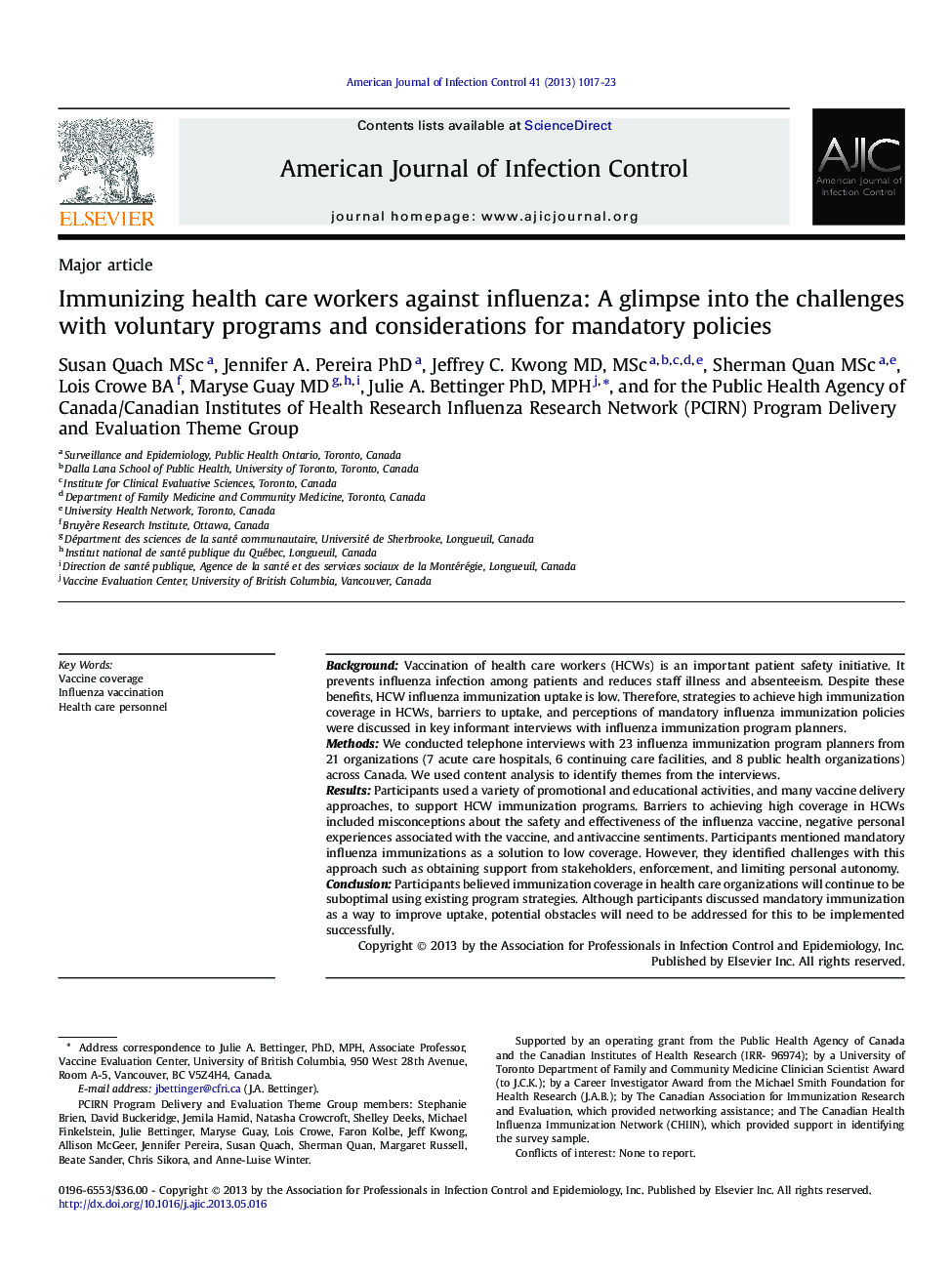| کد مقاله | کد نشریه | سال انتشار | مقاله انگلیسی | نسخه تمام متن |
|---|---|---|---|---|
| 2639547 | 1563493 | 2013 | 7 صفحه PDF | دانلود رایگان |

BackgroundVaccination of health care workers (HCWs) is an important patient safety initiative. It prevents influenza infection among patients and reduces staff illness and absenteeism. Despite these benefits, HCW influenza immunization uptake is low. Therefore, strategies to achieve high immunization coverage in HCWs, barriers to uptake, and perceptions of mandatory influenza immunization policies were discussed in key informant interviews with influenza immunization program planners.MethodsWe conducted telephone interviews with 23 influenza immunization program planners from 21 organizations (7 acute care hospitals, 6 continuing care facilities, and 8 public health organizations) across Canada. We used content analysis to identify themes from the interviews.ResultsParticipants used a variety of promotional and educational activities, and many vaccine delivery approaches, to support HCW immunization programs. Barriers to achieving high coverage in HCWs included misconceptions about the safety and effectiveness of the influenza vaccine, negative personal experiences associated with the vaccine, and antivaccine sentiments. Participants mentioned mandatory influenza immunizations as a solution to low coverage. However, they identified challenges with this approach such as obtaining support from stakeholders, enforcement, and limiting personal autonomy.ConclusionParticipants believed immunization coverage in health care organizations will continue to be suboptimal using existing program strategies. Although participants discussed mandatory immunization as a way to improve uptake, potential obstacles will need to be addressed for this to be implemented successfully.
Journal: American Journal of Infection Control - Volume 41, Issue 11, November 2013, Pages 1017–1023